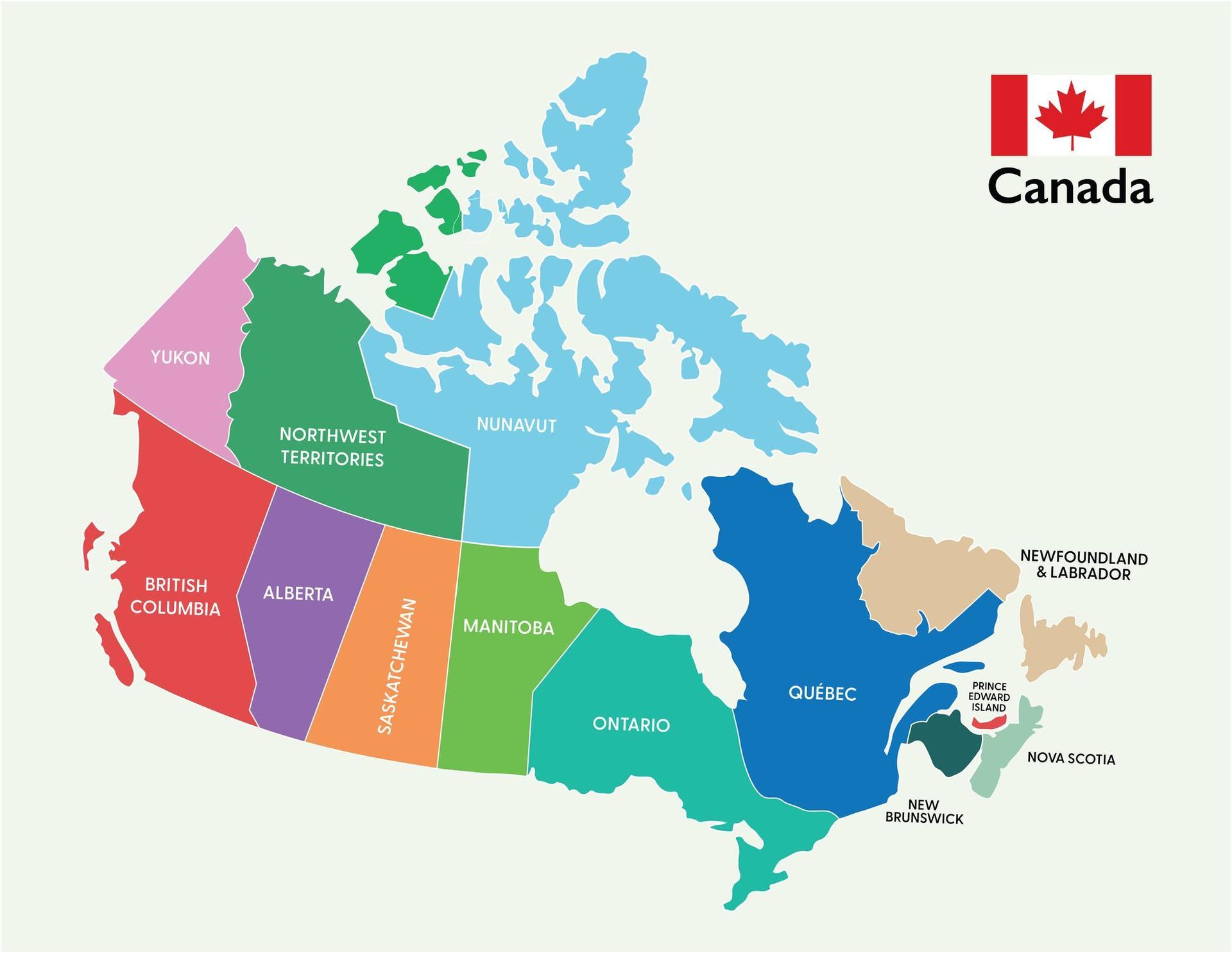A Guide to Global Medical Job Titles for Doctor Job Applicants
Do you get confused by the different job titles used throughout the world for the same medical jobs? This article will decipher the job titles used in different countries and healthcare systems of the world and help you to apply for the right positions.
Doctors searching for jobs in the international healthcare sector often get confused by the job titles used by hospitals and clinics in Europe, the Middle East, USA and Canada, Australia and New Zealand and other parts of the world. The title "Consultant" is used often interchangeably with "Specialist" but sometimes it's not and "Specialist" actually means quite a different role.
Likewise, a "General Practitioner" is not a GP as we understand to be an independent primary care physician, but a house officer and a "Family Physician" is a GP. If that is not confusing enough, there are also "Consultant Family Physicians" and "Specialist Family Physicians". And what is a hospitalist, a nocturnist, a pulmonologist and a physiatrist? How can you know what job you are actually applying for?
Many candidates get very frustrated when they apply for a job, only to find out that the job is not actually what they thought it was. In this article we explain how to decipher job titles, understand what skills and experience the employer is looking for and find the right roles for you.
Specialists, General Practitioners and Junior Doctors
Medical education in most countries, follows a pre-determined structured course aimed at transforming fresh medical graduates into specialists in primary care (general practitioners / family physicians) or a hospital secondary care speciality.
After graduating from medical school, junior doctors start their career with a course of pre-specialist training aimed at gaining broad general clinical experience, usually in multiple specialities. This is of variable duration, depending upon the country of practice. In the USA, Canada and Republic of Ireland, pre-specialist trainees are called interns and internship lasts just one year. In the UK, the first two years of medical work experience are called Foundation Years 1 and 2, shortened to FY1 and FY2, whilst in Australia and New Zealand, which share a complete 4 stage medical education system, pre- vocational trainees are called house officers at the level of postgraduate year one and two, abbreviated to PGY1 and PGY2. In some specialities (emergency medicine) PGY3 is also part of pre-vocational training.
After the internship, foundation years or PGY 1 and 2 are completed, junior doctors enter specialist training in their chosen field
culminating in a final exam, usually called a board certification or fellowship. Specialist training is of variable duration depending upon the area of medicine and the country where training is undertaken and may be as short as three years or run to over 8 years for some surgical specialities.
At the end of this lengthy training, one is considered to be a specialist with an area of expertise in a clearly defined field such as primary medical care or one of the secondary medical care specialisms. Some doctors proceed to sub specialist training by completing further fellowships and become super specialists or sub specialists with a high degree of expertise in a narrow field.
The UK and Ireland, which always like to be different, add an extra component to the specialist training called a Certificate of Completion of Specialist Training (CCT) in the UK or Certificate of Specialist Doctor(CSD) in Ireland. These certificates conclude specialist training and are obtained without examination but do require a period of time spent in higher or advanced specialist professional training. The fellowship exam is taken at the conclusion of basic or intermediate level specialist training usually 2-4 years before the CCT is obtained.
Specialist trainee junior doctors have a variety of job titles. Resident is the title used in the USA and Canada whereas in the UK, Ireland, Australia and New Zealand, the terms are house officer and registrar, often accompanied by the level of experience eg PGY3 house officer, PGY4 registrar etc. After completion of specialist training, some doctors pursue higher subspecialist training and are titled "fellows".
The majority of medical graduates become general practitioners, that is specialists in primary care, usually practising from community clinics or occasionally hospital based primary care departments. The remainder become specialists in hospital medical fields and work in secondary or tertiary level hospitals.
Job Titles and Meaning: Seniority and Specialty
A medical job title describes the speciality of the physician and the level of seniority, from recent medical graduate to experienced specialist. In some countries, only the speciality is used as the job title with no indication of the level of experience of the physician.
Consultant
A consultant is the title of a fully qualified medical specialist in the United Kingdom and Ireland and is commonly used in healthcare systems which are based on those of the United Kingdom and Ireland such as Australia, New Zealand and the Middle Eastern gulf states. That seems straight forward but there are regional variations on how this title is applied, and if you are not familiar with this, you may find yourself applying for a job which is completely unsuitable.
United Kingdom and Ireland
This title is limited to specialists in secondary or tertiary care and is not used for physicians practising in primary care. Doctors using this title must be listed on the specialist register of the General Medical Council or Irish Medical Council, the national professional regulatory authorities.
Australia and New Zealand
As with the United Kingdom, doctors using this title must be registered specialists in a secondary or tertiary care field with the Medical Council of New Zealand (vocational registration) or the Medical Board of Australia (specialist registration). However the titles consultant and specialist are used interchangeably in New Zealand and in Australia, the title specialist is more common.
Middle East
In this region, the title consultant means a specialist in primary, secondary or tertiary care and is usually applicable only after gaining approved specialist qualifications and a defined level of experience, usually one to five years experience after board certification or qualification as a specialist.
This varies by jurisdiction of practice as the appropriate medical regulatory authorities have differing requirements. Hospitals also have their own privileging requirements which may be quite different from those of the medical regulatory authority and just to complicate matters further, some hospitals use the job titles consultant and specialist interchangeably. It should be remembered that a typical general practitioner in the Middle East uses the title consultant in family medicine or consultant family physician.
Specialist
A specialist is the most commonly used title worldwide for a physician who has completed postgraduate medical training and obtained specialist registration or status. The exceptions are the UK, Ireland and the Middle East Gulf States which use the term consultant, as described above.
The Middle East uses the term specialist for a junior consultant who has less than one to five years experience after specialist registration. This includes general practitioners who are called specialists in family medicine or specialist family physicians.
Another complicating factor is the use of the term “associate specialist” in the UK. This is a title for a subconsultant grade physician who is not accredited as a specialist formally (ie does not hold the CCT or CESR and is not listed on the GMC Specialist Register) but has some experience working in a field of secondary healthcare. In other words the associate specialist is not a specialist at all but an experienced junior doctor who has not completed specialist training.
General Practitioners or Family Physicians
General practitioners are primary care physicians, and this is the title used in the United Kingdom, Ireland, Australia and New Zealand. In Canada and the USA the title family physician is used instead and the Middle East complicates the situation further by using the terms consultant or specialist family physician, or consultant or specialist in family medicine, depending upon the number of years of experience the physician has after the completion of postgraduate training and certification.
In the Middle East, a general practitioner is a junior doctor and the equivalent of a house officer or registrar as described below. Candidates should be aware of this when considering jobs in the UAE, Qatar, Saudi Arabia, Oman, Bahrain and Kuwait.
Junior doctors
In the USA, junior doctors are described as interns and residents, the former completing their first postgraduate year and the latter in specialist training programmes from postgraduate year 2 (PGY2) upwards.
In the UK, Ireland, Australia and New Zealand, junior doctors are referred to as resident medical officers (RMOs), house officers or registrars. House officers are physicians in the postgraduate years 1 to 5 who work under the supervision of registrars and consultants or specialists. Registrars are middle grade doctors who are at the level of PGY3 and upwards and usually well on the way to training in their chosen medical speciality.
Registrar and house officer job titles may be accompanied by the terms "training", "service", "non training" or "accredited". This refers to the status of the job with the appropriate postgraduate medical college overseeing specialist training. The colleges assess hospital departments and jobs and rank them according to their capacity to provide basic or advanced training in the relevant speciality, or no training at all.
Service jobs are those which are not accredited for training and therefore have no official educational status. These jobs exist to provide a clinical service only. However, most service jobs do offer valuable clinical experience and thus fulfil some educational purpose, even if unrecognised for the purpose of passing specialist fellowship exams. They also permit access to local departmental medical training. Service jobs are appropriate for junior doctors looking for experience whilst trying to decide upon a specialist pathway or preparing for residency or vocational training entrance exams.
We have now sorted out the various titles for different levels of seniority but different countries use different names for some of the medical specialisms. The common ones are listed below.
Hospitalist and Paediatric Hospitalist
The Hospitalist is a physician job title invented in the USA in 1996 and now increasingly used across the world including Canada, Australia, New Zealand and the Middle East. It is the fastest growing medical speciality in the USA. The position is that of a specialist or consultant in general internal medicine or paediatrics, or occasionally family medicine, who manages hospitalised patients, practising the field of hospital medicine, itself an invention from 1977. The hospitalist forms the backbone of a hospital service on a 24 hour basis, managing acute medical admissions. Paediatric hospitalists are the equivalent of adult hospitalists working in children’s hospitals.
The hospitalist's duties encompass clinical work, medical education and hospital operations. Those working in academic hospitals may participate in research. The hospitalist was born out of the pressing need to cut healthcare costs and revolutionise clinical care and therefore has a key role in designing the delivery of medical services.
Nocturnist
The nocturnist is another American invention which is spreading across the world. The nocturnist is like a hospitalist but works exclusively overnight, admitting patients from the emergency department, managing inpatients and supervising residents. Most nocturnists are trained in internal medicine or family medicine, but some are trained in other specialties, such as pediatrics. Nocturnists are different from on-call doctors because they only work at night.
Medical Officer of Special Scale (MOSS)
This job title is used for doctors who have some training in a hospital specialist field such as internal/general medicine but have not completed the training and therefore do not hold a specialist certification or licence. They usually have a minimum of four years postgraduate experience. The MOSS jobs are not accredited for specialist training and are thus something of a dead end.
Pulmonologist
The pulmonologist is a North American job title for a respiratory physician; that is a physician trained as an internist or general physician, and subsequently specialising in respiratory diseases.
Physiatrist
The physiatrist is a North American job title for a physician specialising in rehabilitation and physical medicine.
How to Evaluate Job Titles
Now that we have given an overview of the various job titles which are used by jobs in different parts of the world, the candidate must now face the task of selecting suitable jobs for applications.
1: Job Title and Location
The first step is to review the job title and the location of the job. This will give you some idea of what the title actually means. For example, if the job title is for a consultant family physician in Dubai, you know that this job is for a qualified and experienced general practitioner / family physician. You must have at least one to five years of experience after certification as a general practitioner to qualify for this position. You will be expected to hold the MRCGP and CCT if from the UK, the American Board of Family Medicine if from the USA or equivalent qualifications from other countries.
If the job title is a family physician and the location is Canada or Australia, you can be confident that this job is for standard general practitioner and the number of years of experience post qualification is generally not an issue unless the employer specifically seeks an experienced physician.
Likewise for consultant or specialist hospital jobs. A job title "general surgeon" in Canada, Australia and New Zealand is for a general surgeon who has completed specialist training and holds the appropriate qualification, FRCSC, FRACS and specialist licence. The term consultant or specialist may be added but often not, it is implied rather than explicit. In the UK and Ireland, the title consultant always precedes the speciality.
In the countries of the Middle East such as Saudi Arabia and the UAE, the terms consultant or specialist precede the speciality but the job advert or description must be read carefully to determine the credentials sought by the employer, as the qualifications and experience requirements may vary substantially.
2: Job Advert, Description and Requirements
Once you understand the job title and location, your next step should be to read the job advert and description thoroughly including the essential (ie. non negotiable) and preferred (ie. negotiable) requirements for the position. Many candidates skip this step and end up applying for jobs they are not qualified to do. Most job descriptions will include a list of duties followed by a list of requirements for eligibility for the position. You should pay attention to the qualifications which are required by the employer and the number of years experience the employer is stipulating.
It should be noted that in the Middle East, the requirements for credentialing (ie obtaining a licence to practice in the jurisdiction) can be different from those for privileging (ie. obtaining rights to practice in a specific hospital or clinic). Hospitals often have criteria which are more stringent than those of the regulatory authority which means that you may be granted a licence to practice your speciality in a particular jurisdiction but may be rejected the right to practise by a hospital on the grounds of qualifications or experience. Some hospitals accept only applicants holding preferred qualifications and / or defined levels of experience regardless of licence status. For more information, read about credentialing and privileging of physicians in the Middle East.
In Australia, New Zealand, Canada, UK and Ireland, experience post specialist qualification is generally not a specific requirement unless the job advert or description explicitly states that an experienced practitioner is sought. This is usually the case for leadership positions or jobs in rural and remote areas where support and second opinions are not readily available.
These tips should help you understand the meaning of the job titles across the world and help you to search for the appropriate job titles for job applications. If you have any questions or doubts please contact us for clarification.
Looking for a medical job?
You can register your CV with us and access a candidate dashboard from where you can manage your job searches, save jobs, make job applications and sign up for job alerts.
30 March 2022
Share this post on Social Media


















